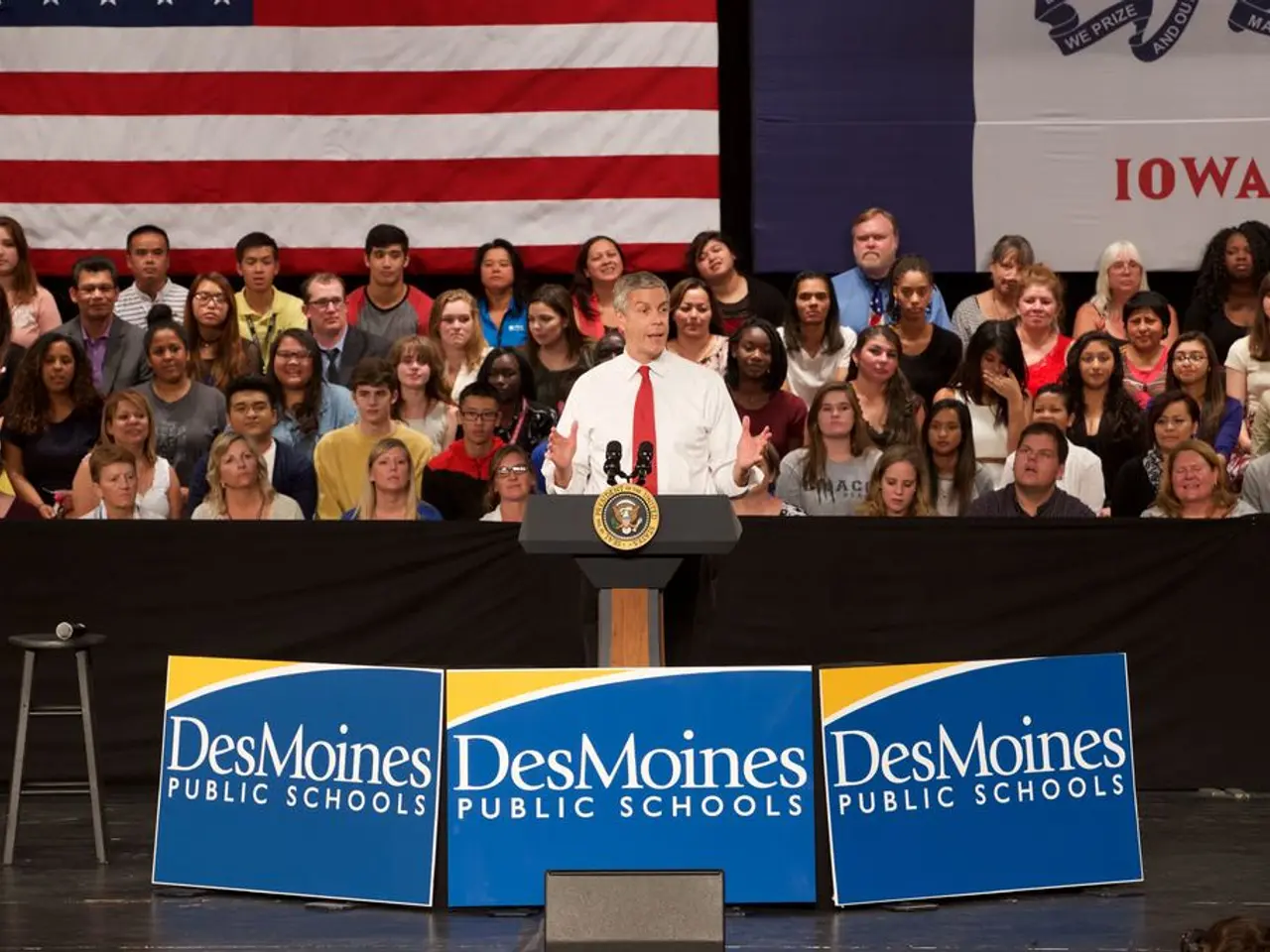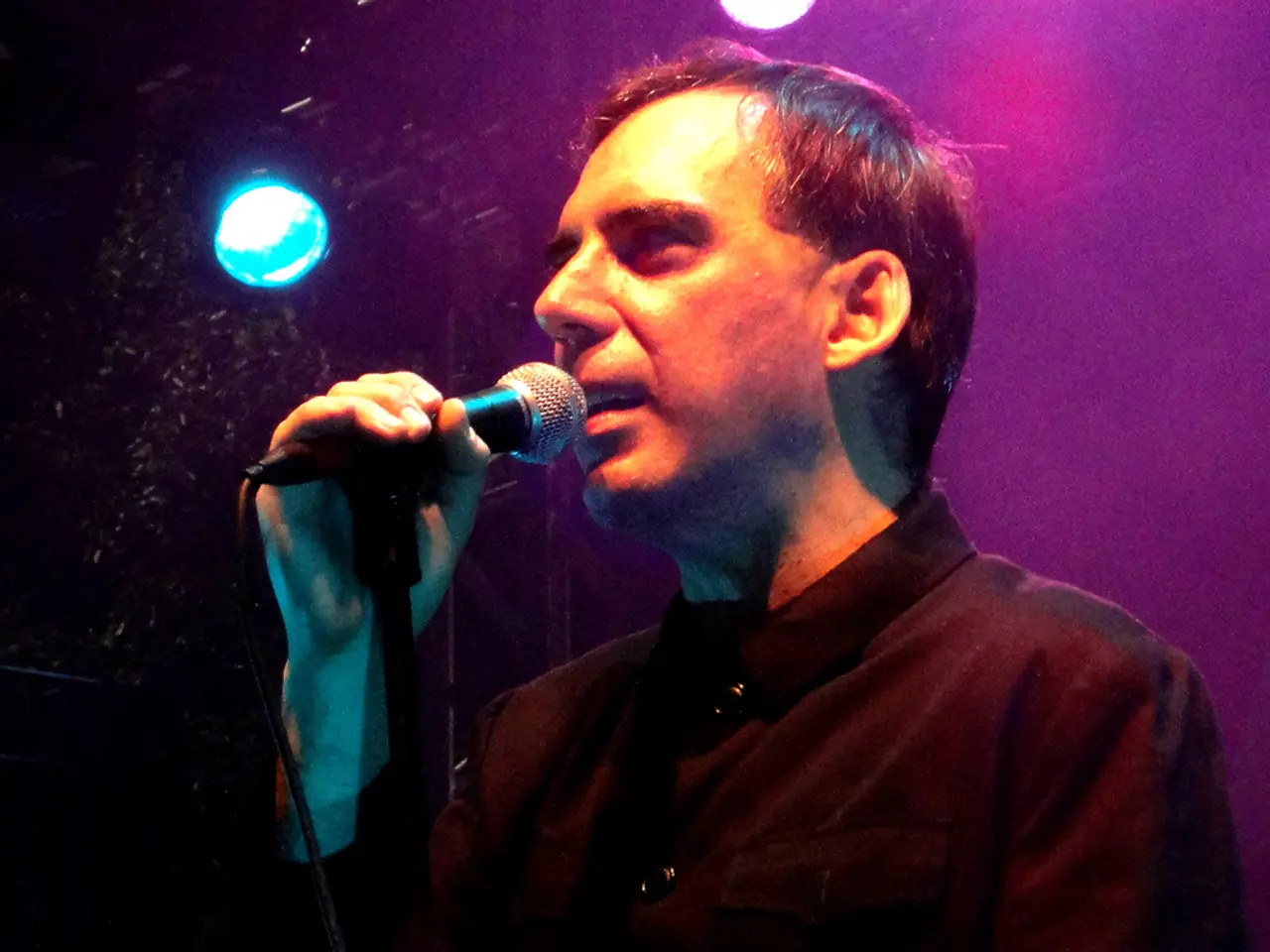Political Crackdown: Authorities in Pakistan Lock Up 108 PTI Officals for a Decade Over May 9 Riots
In a controversial move, an Anti-Terrorism Court (ATC) in Faisalabad sentenced over 100 senior members of Pakistan Tehreek-e-Insaf (PTI), Imran Khan's political party, to prison terms on July 31, 2025. The sentences range from 10 years for senior leaders to 1-3 years for other activists [1].
The verdicts, which include life imprisonment for some PTI workers and the disqualification of six PTI lawmakers, have been met with widespread criticism. Opposition and PTI supporters denounce these rulings as an attempt to weaken Imran Khan’s party ahead of significant rallies, marking an unprecedented use of judicial tools against opposition leaders [1].
The judge cited concrete evidence of coordinated conspiracy and violent acts, marking a rare and controversial use of the Anti-Terrorism Court to suppress political dissent [1]. The convicted face charges of inciting violence, arson, and coordinating attacks on military installations and government properties on May 9, 2023, when PTI supporters attacked military sites following Khan's arrest [1].
Senior PTI leaders convicted in this case include Omar Ayub Khan, then opposition leader in the National Assembly, and Shibli Faraz, leader in the Senate [1]. Many PTI leaders have resigned from the party under duress, had businesses sealed, or been subjected to surveillance [1].
Critics warn that the verdicts reflect an ongoing erosion of political pluralism amid tightened military dominance. The mass sentencing could reshape parliamentary dynamics due to the disqualification of lawmakers and signals a crackdown on organized opposition challenging military influence [1].
The disqualification of lawmakers further weakens PTI's legislative influence. Civil society groups have raised serious human rights concerns about the fairness of court proceedings and the denial of due process [1]. Ties with Western allies, particularly the U.S., remain complicated due to the verdicts undercutting democratic norms.
Imran Khan himself faces over 150 cases in separate trials, keeping the party's leadership in jeopardy [1]. PTI supporters have long faced the use of broad anti-terrorism powers, arbitrary arrests, forced disappearances, and intimidation [1].
Analysts argue that the mass sentencing follows PTI's rise in the 2024 election and may further polarize Pakistani politics. The charges against the convicted PTI members relate to their roles in the May 9, 2023 riots [1].
The mass sentencing is seen as consolidating control by army chief Asim Munir, who is also facing criticism for presiding over electoral manipulation and political repression [1]. Broader legal reforms or political reconciliation remain uncertain amid rising domestic authoritarianism.
PTI Chair Gohar Ali Khan vowed appeals and hinted at further protests on August 5, marking two years since Imran Khan's imprisonment [2]. Despite winning the largest number of seats in the February 2024 elections, PTI was prevented from forming government due to interference from the military establishment [2].
The sentencing of 108 PTI officials marks a critical turning point in Pakistan's political landscape and raises pressing questions about the future of democracy in the country.
References: [1] BBC News (2025). Pakistan: Imran Khan's party leaders jailed in anti-military protests case. [online] Available at: https://www.bbc.com/news/world-asia-61287364 [2] Dawn (2023). PTI chair Gohar Ali Khan vows appeals, hints at protests on August 5. [online] Available at: https://www.dawn.com/news/1663487
- The sentencing of over 100 PTI leaders for violence and attacks on government properties has raised concerns about the future of democracy in Pakistan, as many view it as a crackdown on political opposition and an erosion of political pluralism.
- The verdicts, which include life imprisonment for some PTI workers and the disqualification of six PTI lawmakers, have been met with widespread criticism, with the general public and Civil society groups raising serious human rights concerns about the fairness of court proceedings and the denial of due process.
- The mass sentencing follows PTI's rise in the 2024 election, and analysts argue that it may further polarize Pakistani politics, potentially affecting policy-and-legislation and general-news in the country.
- The use of war-and-conflicts-related charges against PTI members in this case highlights the militarized politics in Pakistan, with critics warning of tightened military dominance and a consolidation of control by army chief Asim Munir, who is also facing criticism for presiding over electoral manipulation and political repression.







